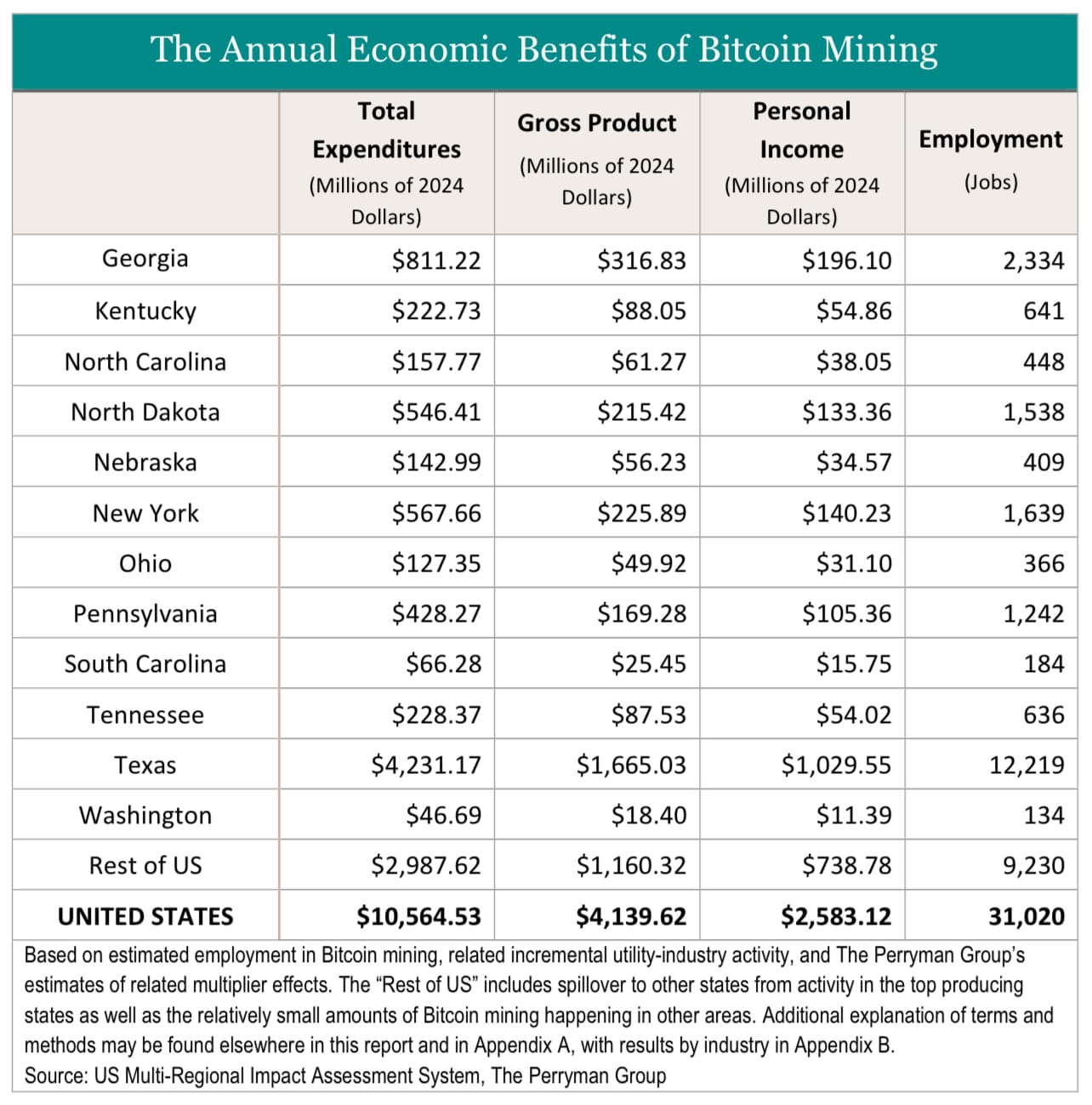Bitcoin Mining Boosts US Economy by $4 Billion, Creates 31,000 Jobs

Bitcoin mining, often criticized for its environmental footprint, is now making headlines for its significant economic contributions to the United States. A comprehensive analysis by the Perryman Group, commissioned by key crypto advocacy groups like the Digital Chamber of Commerce and the Texas Blockchain Council, highlights the industry's substantial impact on the nation's GDP and employment.
The study reveals that in 2024 alone, Bitcoin mining has injected over $4 billion into the US economy, creating approximately 31,000 jobs. This economic infusion is particularly felt in local communities, where Bitcoin miners not only act as major employers but also contribute significantly as taxpayers. These benefits extend beyond mere job creation; they stimulate related industries like logistics and warehousing, particularly in smaller, rural areas where such investments are crucial for community development.

Texas Dominates Bitcoin Mining
Texas stands out as the primary beneficiary of Bitcoin mining activities, contributing $1.7 billion to its GDP and providing 12,219 jobs. The state has become a hub for major Bitcoin mining operations, including giants like MARA Holdings, Iris Energy, and Riot Platforms. This concentration is partly due to Texas's favorable relationship with the Electricity Reliability Council of Texas (ERCOT), which collaborates with miners to enhance grid stability and optimize energy usage. This symbiotic relationship not only supports economic growth but also plays a vital role in the state's energy management strategy.
While Texas leads, other states are not far behind in reaping economic benefits. Georgia adds $316 million to its annual GDP, and New York contributes $225.9 million. Even states like North Dakota and Pennsylvania see notable economic activity from Bitcoin mining, illustrating a widespread impact across the country.
However, the recent volatility in Bitcoin prices, which dipped below $100,000 and settled around $93,000, has introduced challenges for miners. This price drop has led to a decline in the hash price to $52.54, squeezing miners' profit margins. Despite these challenges, the industry shows resilience. For instance, MARA Holdings has strategically expanded by acquiring a wind farm in Texas, aiming to reduce operational costs and increase capacity by 114 megawatts.
The narrative around Bitcoin mining is shifting from environmental concerns to recognizing its economic contributions. As the industry adapts to market fluctuations and continues to expand, its role in supporting and growing the US economy is likely to become more pronounced. This evolution underscores the multifaceted impact of cryptocurrency mining, not just as a technological innovation but as a major economic player.

